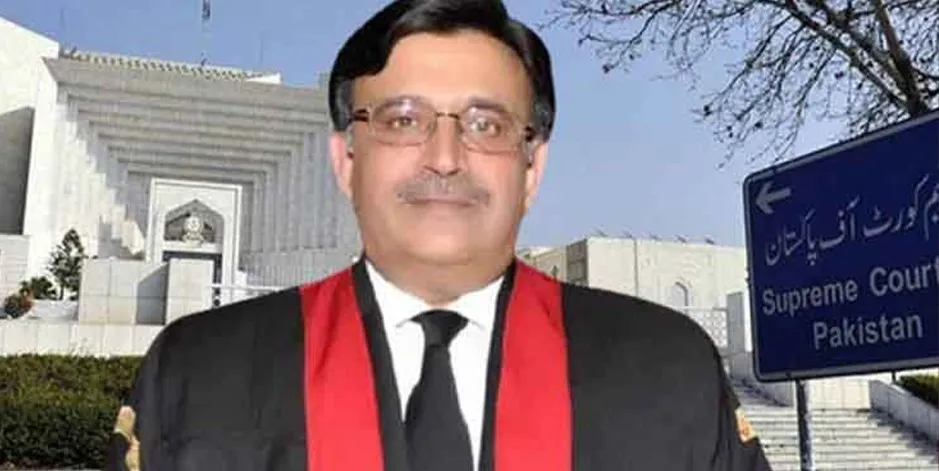Pakistan’s Chief Justice Umar Ata Bandial stated that the Supreme Court could not force the government to negotiate with the opposition.
Chief Justice Umar Ata Bandial made these comments as a three-member Supreme Court bench, headed by Chief Justice and Justices Ijazul Ahsan and Munib Akhtar, started hearing the case concerning election delays. However, the hearing was adjourned in under an hour, with the Chief Justice announcing that a comprehensive order would be issued later.
During the previous hearing, the court had directed political parties to convene on April 26 and submit a response by April 27, providing them an opportunity to reach an agreement. However, with the May 14 election date still uncertain and the order binding on all authorities, political parties were encouraged to decide quickly.
However, the government did not comply with the April 4 directive.
On April 4, a three-member bench, including Chief Justice Bandial, ordered the Election Commission of Pakistan (ECP) to hold elections in Punjab on May 14 and directed the government to release the necessary funds by April 10.
Despite this, the government has not released the funds, insisting that National Assembly and provincial assembly elections occur simultaneously.
Read: Pakistan Supreme Court to Hear Election Delay Case Amidst Political Stalemate
On April 10, Finance Minister Ishaq Dar presented a bill to the National Assembly (NA) requesting funds for elections in Punjab and KP, which was subsequently rejected. Government-dominated standing committees in both Houses of Parliament rejected the measure in separate meetings.
The Supreme Court then revisited the issue, ordering the State Bank of Pakistan (SBP) to provide funds to the ECP by April 17 for the Punjab and KP elections.
The court instructed the SBP to disburse Rs21 billion from Account No. I, a main part of the Rs1.39 trillion Federal Consolidated Fund (FCF), and send an “appropriate communication” to the finance ministry by April 17.
In response to the Supreme Court’s directives, the central bank allocated the funds and sought the finance ministry’s approval before releasing them to the ECP. However, the government’s approval was necessary to release the amount from the FCF, and the National Assembly’s approval was required.
On April 17, the coalition government secured another rejection of its request for Rs21 billion as a supplementary grant to the ECP for holding elections in the two provinces, effectively nullifying the Supreme Court’s third directive for fund release.
The next day, during a hearing on a defense ministry petition for same-day elections, the Supreme Court warned the government of “serious consequences” if it failed to release the necessary funds for elections in Punjab and KP. The document emphasized that the prime minister “must always enjoy the confidence of the majority of the National Assembly.”
The order also stated that the NA’s refusal to release election funds had “serious constitutional implications” in this context.
On Wednesday, after the federal cabinet agreed to refer the matter to the legislature, the issue was again discussed in the National Assembly.






